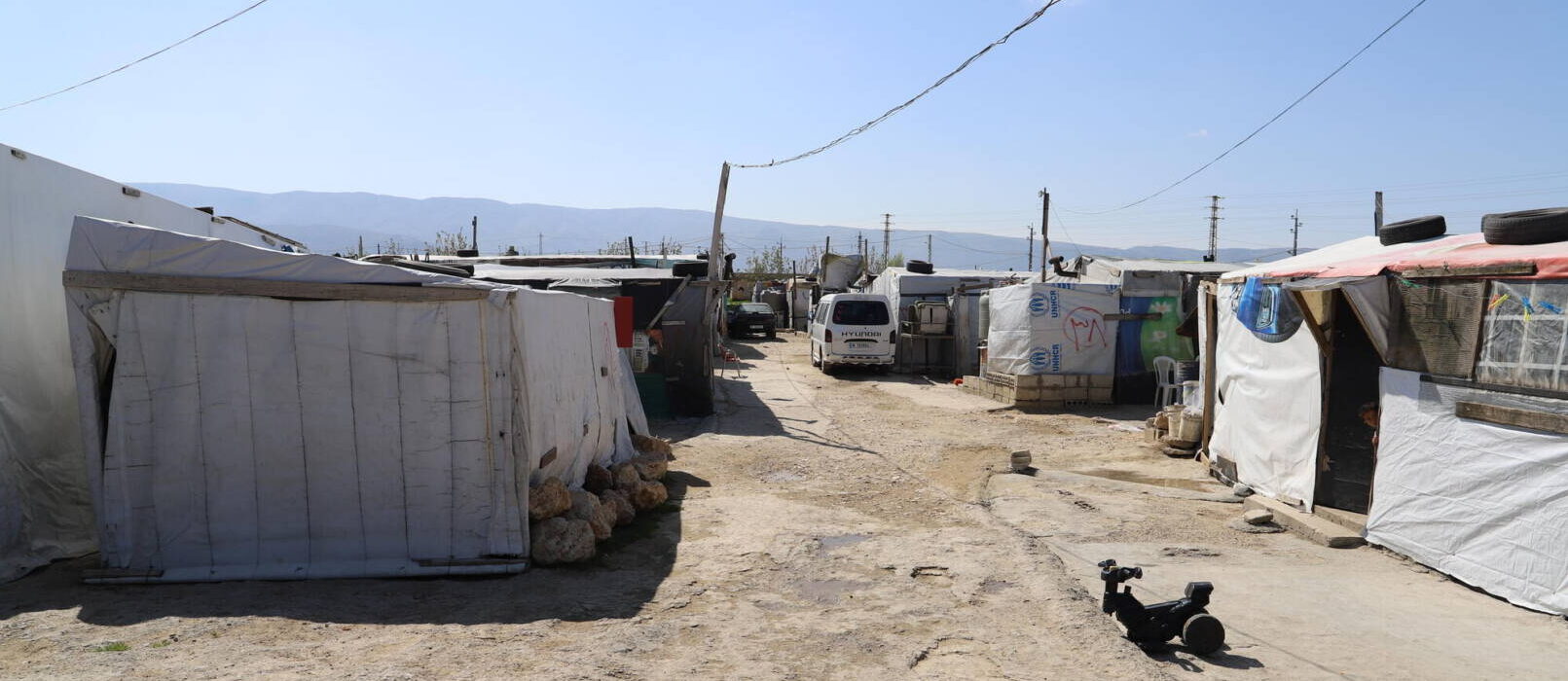The war in Syria, now lasting more than 11 years, has displaced 13.5 million people, accounting for more than half of Syria’s population. Over those years, 1.5 million Syrians have sought refuge in Lebanon, a country that holds the most displaced people per capita in the world. One in four people in Lebanon is a Syrian refugee.
Though the war raging in their homeland is no longer at the forefront for Syrians in their new land, the impact of Lebanon’s economic decline is taking its toll. Within the last three years, the Lebanese pound has lost 90% of its value. Food prices rose 400% between January and December of 2020. The economic strain has pushed families to the fringes, unable to afford basic necessities. Food, healthcare, education, and water and hygiene items are nearly out of reach, with almost 90% of Syrian refugees in Lebanon facing extreme poverty.
Lebanon’s economic crisis coupled with school closures have amplified protection risks for 1.3 million children, whose education was affected due to the pandemic in 2020. More than 50% of school-age Syrian refugee children are out of school. Many are pushed into child labor, helping lighten their families’ current financial burdens while compromising their futures.
Children’s well-being is at the heart of what we do. In Lebanon’s Bekaa Valley, World Vision provides psychosocial support to children who are or have been part of child labor. Sessions aim to provide a safe space where they can express themselves, cope with stress, create friendships and support circles, voice their dreams and ambitions, and learn about their rights as children.
We’re sharing stories of children impacted by Lebanon’s crisis, each of whom has dropped out of school. With the support of World Vision, children are learning techniques to help them heal and look onward to the future.
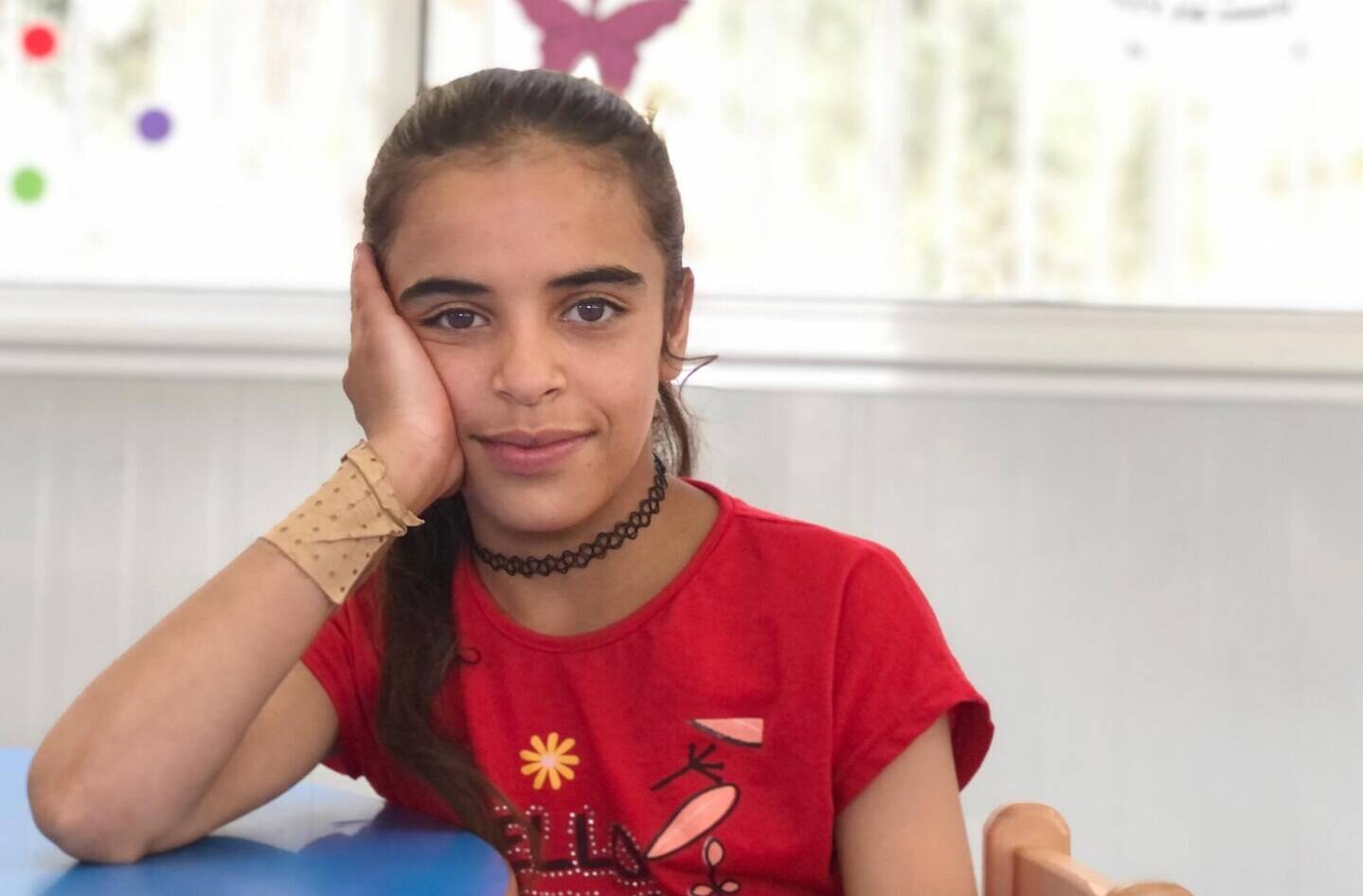
Khaula
Twelve-year-old Khaula attends school one week and works the next. Her school divides students into two groups, alternating attendance each week. While Khaula is out of school, she helps provide income for her family by collecting scrap metal. She then sells the iron-based items to someone who melts and molds them into other items. “It is hard, sometimes we don’t get treated well … the [scrap metal] is very heavy,” she says, “and I get hurt and injured sometimes.” Though her work is difficult, Khaula doesn’t see a way around it. “I work to bring food for my family; I don’t take any days off … it is the only way to survive and to bring money and food for my parents.”
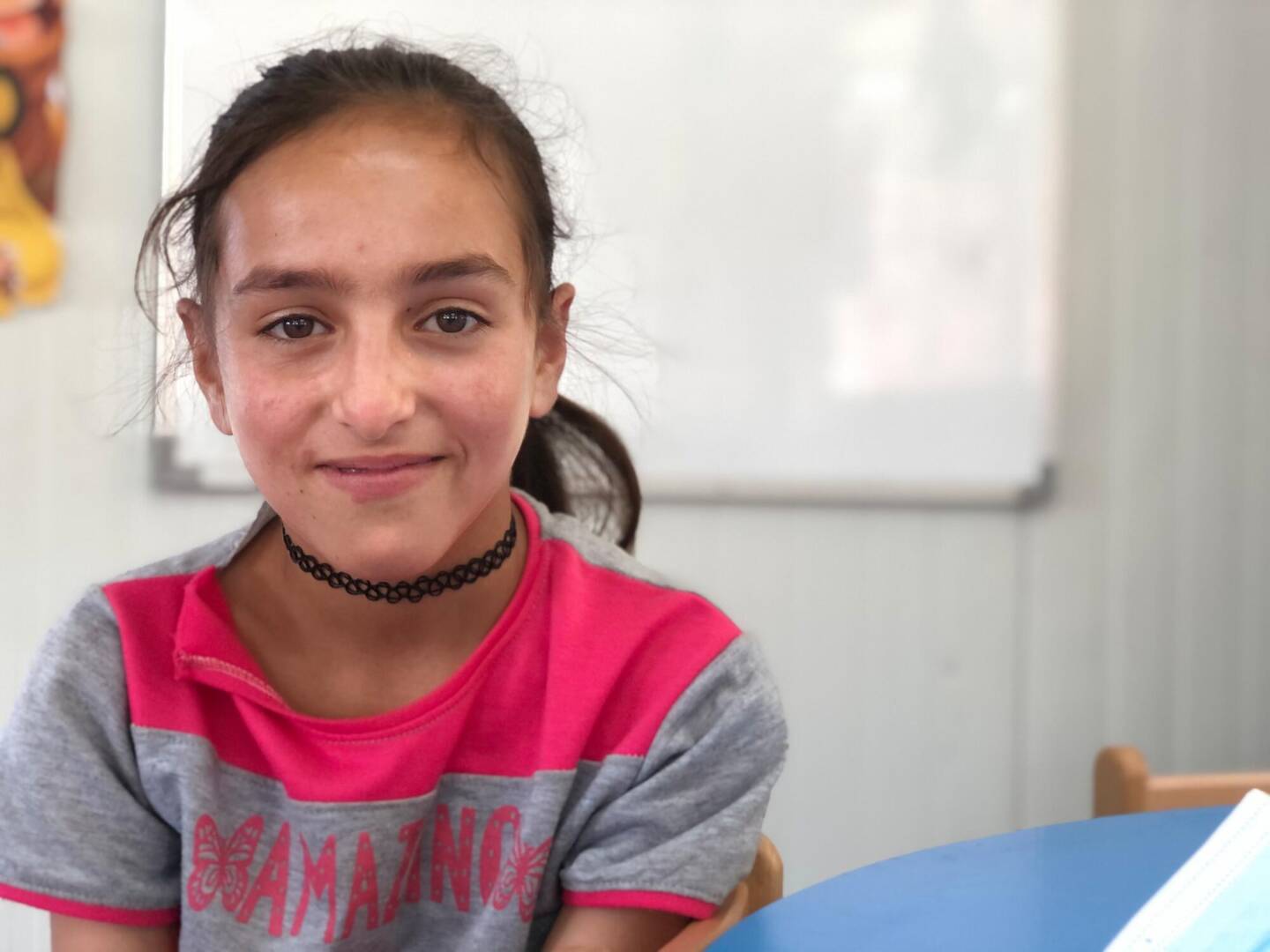
Walaa
Twelve-year-old Walaa also alternates weeks of school attendance and works to collect scrap metal for pay. She helps her family pay off debts and afford vegetables. “I feel bad when I see my friends not working, but I have to work. I dream of becoming a teacher to teach the children that cannot go to school,” shares Walaa. World Vision classes helped Walaa learn that “it is my right as a child to be in school, to play and have fun and to be able to express my thoughts.” Teachers provided a hotline number in the event she or her peers experienced harassment or violence while on the roads collecting scrap metal.
Mustapha
Mustapha, 12, attended World Vision classes where he learned “a lot of beautiful lessons with World Vision, about children’s rights like education. This is motivation for me to continue my education one day to become a pediatrician.” Mustapha dropped out of school because his family couldn’t afford transportation fees, and he now works collecting scrap metal. “I feel sad when I see other children going to school while I am going to work.” Mustapha’s days are filled at work, while he helps his mom with household chores in the evening. “The most difficult task is holding the heavy weight on my back. It is exhausting, but I have to work to survive.” Each month, his family saves their income to afford food like a bag of potatoes, a carton of eggs, or a chicken that lasts for one meal.
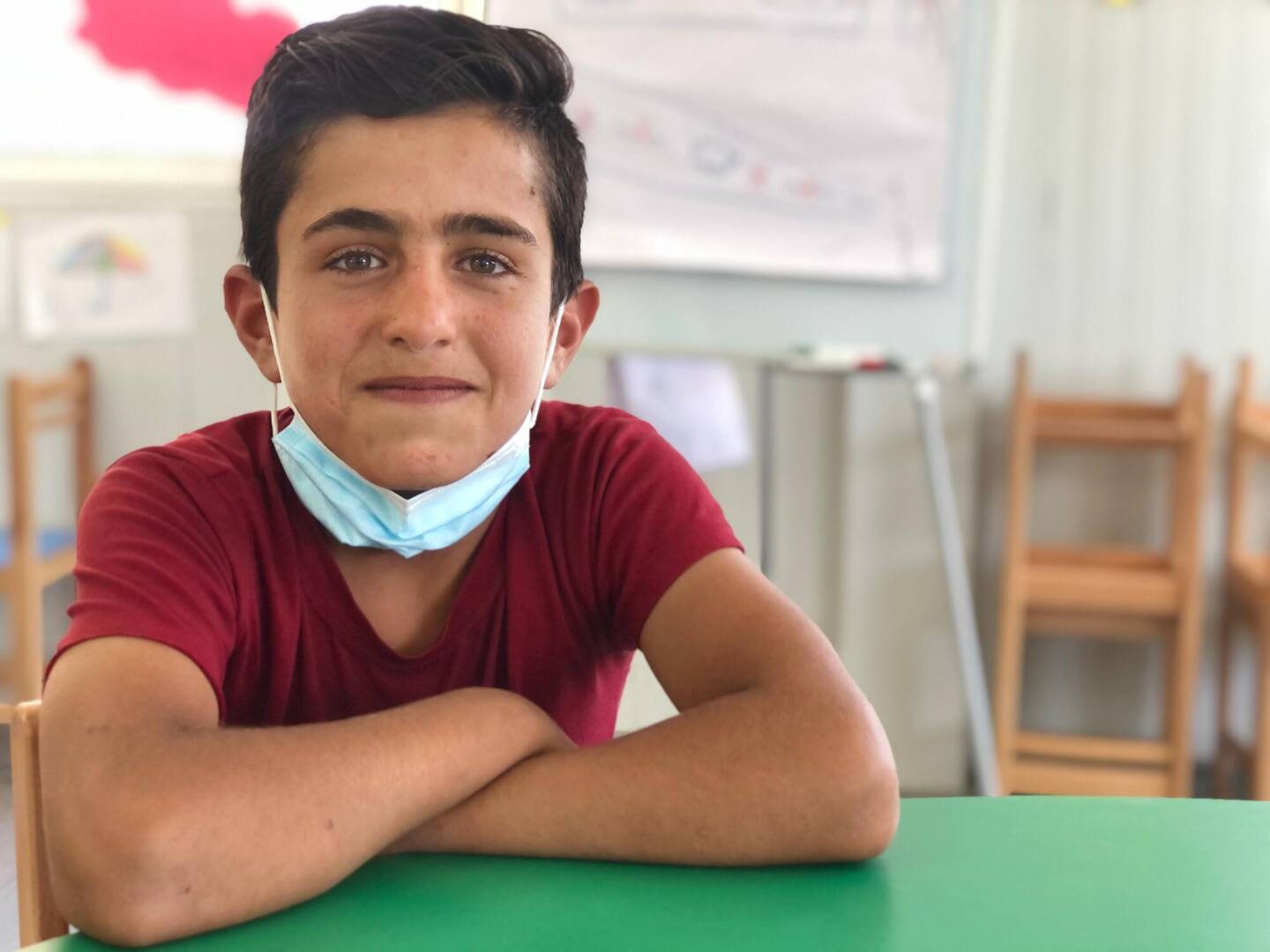
Wael
Twelve-year-old Wael dreams of one day becoming an architect. He wants to build a house because his family now lives in a tented informal settlement. “I remember our house in Syria was very beautiful before the war started. During the winter it was very warm [inside our house]. In the tents, we feel very cold during winter,” shares Wael as he reminisces about his former home. His father is sick and is no longer able to work. With 11 siblings, Wael works to help his family afford food. When he’s not in school, he works a full day collecting scrap metal before returning home to help with household chores. “The sessions with World Vision helped us learn a lot of things about our rights and how to protect ourselves,” says Wael. “I enjoy attending the sessions and I feel very comfortable when I do.”
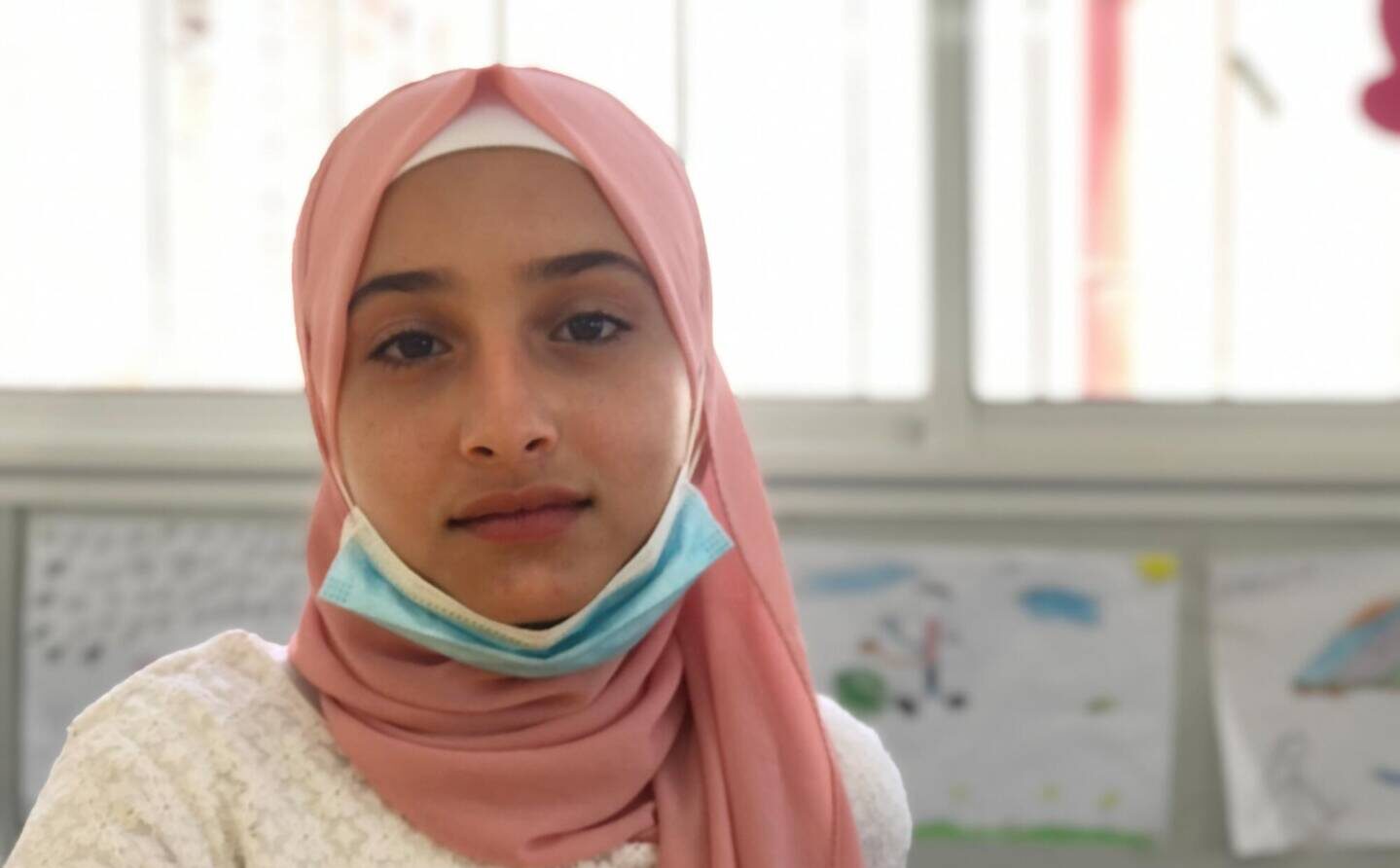
Imane
Lebanon’s crisis pushed 14-year-old Imane to drop out of school in 2021 to help support her household. “I really wanted to continue my education … I dream of becoming a pediatrician; I want to help sick children,” shares Imane. “Life was hard for us in Lebanon, but I live on hope.” Imane attends World Vision sessions where she feels encouraged to continue learning in any capacity. “I have not let negative factors prevent me from learning. In my free time I search on Google about the topics I am interested in, to learn more about them,” she adds. “I believe there is always a hope.”
There is always hope.
Lebanon’s economic crisis has restricted children’s ability to attend school, but World Vision programs work to strengthen a child-sensitive social protection system for vulnerable children. Every child has the right to be in school, and advocating for children’s right to education is our priority with this work.
We work hard so kids don’t have to.
Amy Van Drunen of World Vision’s U.S. staff contributed to this article.
